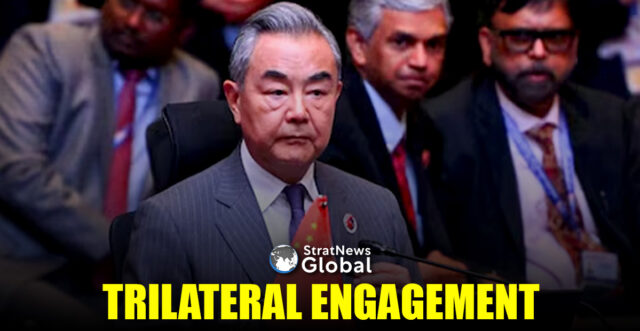Chinese Foreign Minister Wang Yi has urged Pakistan and Afghanistan to enhance trilateral engagement across all levels, as China looks to deepen security cooperation with its neighbouring countries, according to a statement from the Ministry of Foreign Affairs.
Wang, who attended a three-way meeting with his counterparts in Kabul on Wednesday, said the countries should continue to build strategic mutual trust and deepen security cooperation.
China is ready to understand and support issues involving each country’s core interests and firmly oppose external interference in the region as well as any organisation or individual undermining each other’s national sovereignty, the minister said, according to a readout on Thursday.
Eradicating Terrorism
“It is necessary to improve the security dialogue mechanism, deepen law enforcement and security cooperation, strengthen the fight against transnational terrorist activities, and eradicate the breeding ground for terrorism,” Wang said.
The readout did not mention any terrorist groups, but a report by Chinese state media Xinhua on Wang’s meeting with Afghanistan’s acting Foreign Minister Amir Khan Muttaqi mentioned the East Turkestan Islamic Movement.
The report cited Wang as saying China hopes Afghanistan will intensify efforts to combat such terrorist forces.
China shares a 596 km (370 miles) border with Pakistan that runs through the Karakoram Mountains, extending from the tripoint with Afghanistan to the disputed area with India near the Siachen Glacier. With Afghanistan, China shares a 92 km (57 miles) border that meets Pakistan’s Gilgit-Baltistan territory.
East Turkestan
The countries border China’s northwest Xinjiang region, which had in the past been beset by conflict which Beijing blamed on Islamist militants and ethnic Uyghur separatists who say they seek to establish an independent East Turkestan.
Wang also conveyed to his counterparts that China, Pakistan, and Afghanistan should work towards expanding development cooperation, boosting trade and investment exchanges, and strengthening network connectivity, in order to promote regional stability and shared prosperity.
(With inputs from Reuters)





